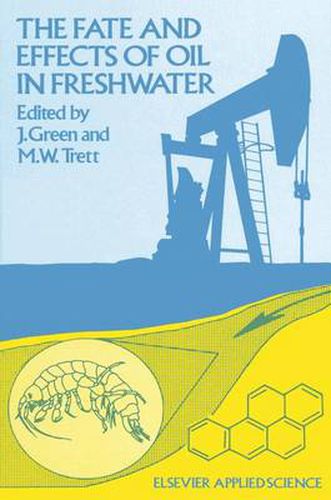Readings Newsletter
Become a Readings Member to make your shopping experience even easier.
Sign in or sign up for free!
You’re not far away from qualifying for FREE standard shipping within Australia
You’ve qualified for FREE standard shipping within Australia
The cart is loading…






This title is printed to order. This book may have been self-published. If so, we cannot guarantee the quality of the content. In the main most books will have gone through the editing process however some may not. We therefore suggest that you be aware of this before ordering this book. If in doubt check either the author or publisher’s details as we are unable to accept any returns unless they are faulty. Please contact us if you have any questions.
Freshwater is a most precious natural resource. To the developed world, refreshing, untainted water is presumed from the taps of millions of householders. The many rivers, streams, ponds and lakes are for the pleasure and enjoyment of the leisure hours of urban dweller and rural inhabitant alike-boating, fishing, sailing and swimming come readily to mind. To the agriculturalist and industrialist it is often the cornerstone of their enterprises. To the environmentalist and naturalist it is the basis of the wetland and open water communities which provide the habitats for a wealth of flora and fauna. In the developing world the emphasis is very different. A spring, well, river or swamp is the basis of day-to-day survival for family, livestock and crops. Subsistence fishing is often the major source of protein. Freshwater may be the unwitting purveyor of disease but with good management this can be regulated and monitored. But Man by nature, is a selfish species who tends to have scant regard for the quality of life of future generations. The much publicised destruction of forests is a notorious example. Not so well-known is the pressure on one of the world’s most fragile ecosystems, the wetlands.
$9.00 standard shipping within Australia
FREE standard shipping within Australia for orders over $100.00
Express & International shipping calculated at checkout
Stock availability can be subject to change without notice. We recommend calling the shop or contacting our online team to check availability of low stock items. Please see our Shopping Online page for more details.
This title is printed to order. This book may have been self-published. If so, we cannot guarantee the quality of the content. In the main most books will have gone through the editing process however some may not. We therefore suggest that you be aware of this before ordering this book. If in doubt check either the author or publisher’s details as we are unable to accept any returns unless they are faulty. Please contact us if you have any questions.
Freshwater is a most precious natural resource. To the developed world, refreshing, untainted water is presumed from the taps of millions of householders. The many rivers, streams, ponds and lakes are for the pleasure and enjoyment of the leisure hours of urban dweller and rural inhabitant alike-boating, fishing, sailing and swimming come readily to mind. To the agriculturalist and industrialist it is often the cornerstone of their enterprises. To the environmentalist and naturalist it is the basis of the wetland and open water communities which provide the habitats for a wealth of flora and fauna. In the developing world the emphasis is very different. A spring, well, river or swamp is the basis of day-to-day survival for family, livestock and crops. Subsistence fishing is often the major source of protein. Freshwater may be the unwitting purveyor of disease but with good management this can be regulated and monitored. But Man by nature, is a selfish species who tends to have scant regard for the quality of life of future generations. The much publicised destruction of forests is a notorious example. Not so well-known is the pressure on one of the world’s most fragile ecosystems, the wetlands.